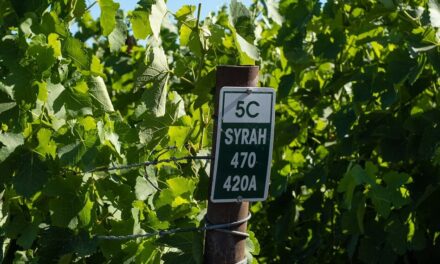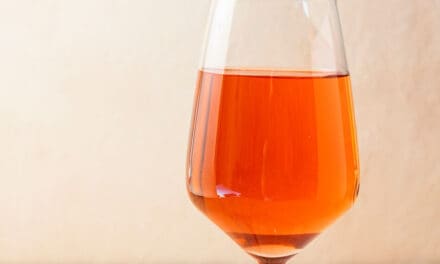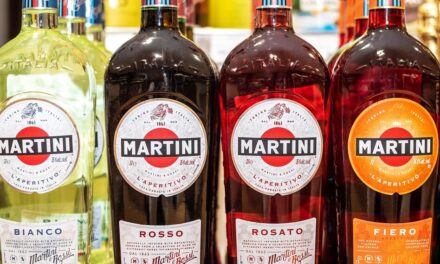Meritage wine is high-quality Bordeaux-style wine that does not come from Bordeaux. It can be red or white and is subject to strict production rules by The Meritage Alliance.
Although the wines are comparable to the famous French styles from Bordeaux, some differences exist. Read on for more details.
THE HISTORY OF MERITAGE WINES
Meritage wines have been around for only a couple of decades. In 1988, a small group of California winemakers became frustrated by specific regulations of the U.S. Bureau of Alcohol, Tobacco, Firearms, and Explosives. Their main complaint was the requirement to use at least 75% of a grape variety to name the wine after this variety. As they were advocates of high-quality blends, they felt disenfranchised by this rule.
Thus, they founded “The Meritage Association” to promote their cause. They were eager to find a new name (and brand) to highlight the quality of their blended wines made from traditional Bordeaux grapes. And after collecting more than 6,000 ideas, the group finally came up with the term “Meritage”.
In 2009, the Meritage Association renamed itself “The Meritage Alliance“. Today, the alliance has several hundreds of members from all across the United States. Most of them are located in the big wine states of California, New York, and Oregon. But winemakers from other states and countries, such as Canada, Australia, Argentina, France, Israel, and Mexico, belong to the group.
The association has filed the term Meritage as a trademark. So only vintners who are members and pay a license fee can use it on their bottle labels.
What Does Meritage Mean?
Meritage is a fantasy word that the founders of The Meritage Alliance created. It combines the terms “merit” and “heritage” to reflect the high quality of the grapes and the ancient winemaking and blending traditions.
How To Pronounce Meritage
Many wine lovers believe that the last syllable of the word should be stressed, just like in “massage” or “sabotage”. But actually, the term’s creators stress the “i” and pronounce it similar to “heritage”.
WHAT IS MERITAGE WINE MADE FROM?
The production rules by the Meritage Alliance limit the varietals that their members can use to produce their wines. Only the grapes that Bordeaux winemakers have used over the last centuries are allowed.
When making red Meritage wines, vintners have to use at least two of these varietals:
- Cabernet Sauvignon
- Cabernet Franc
- Carmenere
- Malbec
- Merlot
- Petit Verdot
- Gros Verdot
- Saint-Macaire
White Meritage wines must contain at least two of the following three varietals:
- Sauvignon Blanc
- Semillon
- Muscadelle du Bordelais
HOW IS MERITAGE WINE MADE?
As mentioned before, all Meritage wines are blends composed of at least two different grape varieties. But the blending happens very late in the process.
During the first steps of the winemaking process, vintners deal with the grapes individually. They harvest as soon as they have reached their optimal ripeness, press and ferment them, and even barrel-age them separated from each other. Usually, the single base wines spend at least six months in oak.
Only shortly before bottling the vintners decide to what proportions they will combine the grapes. In any case, they cannot use more than 90% of the same varietal.
After the blending, the vintners let the wines age further. The typical aging period tastes at least one year in French and American oak barrels. Some winemakers let their wines mature even further in the bottle for up to three years before releasing them to the market.
WHAT DOES MERITAGE WINE TASTE LIKE?
Typical red Meritage wines are dry and medium- to full-bodied with perceivable yet soft tannins. They feature intense red and black fruit flavors such as raspberry, cherry, plum, or cassis. Besides, you might sense chocolate, vanilla, spices such as black pepper, herbal and floral notes, and oaky and earthy notes from barrel-aging.
White Meritage is also a dry, full-bodied wine with a significant alcohol level and good acidity. Aromas of citrus and tropical fruits are common, and so are notes of honey. As many whites are barrel-aged, you can sense oaky notes in them, too.

Rodney Strong Symmetry Meritage 2016
$59.99
from: Wine.com

Lyeth Sonoma Meritage 2020
$21.99
from: Wine.com
HOW TO SERVE MERITAGE WINE?
Meritage wine is an excellent beverage to enjoy with the main course of your dinner. Most whites are excellent on their own, as well. In any case, you should make sure to choose the proper glassware and serve them at the right temperature.
What Is the Best Glass for Meritage Wine?
Meritage wines are inspired by Bordeaux wines. Thus, it makes perfect sense to serve them in Bordeaux glasses. These glasses have enormous bowls to help aerate the wine and dissolve the aggressive alcoholic odors. As a result, the more subtle aromas can shine.
For white Meritage, you should pick another glass, though. A Sauvignon Blanc glass is a good choice. It is the tallest of all white wine glasses but has a relatively narrow bowl to prevent over-oxidation. Nevertheless, it provides sufficient space to promote the wine’s fruity aromas.
What Is the Optimal Serving Temperature for Meritage Wine?
When serving red Meritage, make sure it is slightly chilled. Temperatures between 60 and 65°F (15-18°C) are perfect.
White styles should be cooler. Aim for around 50°F (10°C).
Should You Decant Meritage Wine?
Whether you should decant Meritage wines depends on the style: Young whites typically do not need much aeration, so that you can waive the decanting. In contrast, older bottles benefit from sitting 30 to 60 minutes in a decanter.
For red wines, decanting is a must-do. Give them between 60 and 120 minutes in contact with air to release their delicate aromas. Very old reds are exceptions. If your bottle is older than 20 years, limit the decanting to 30 minutes. In any case, make sure to remove sediments that might have formed inside the bottle.
HOW TO STORE MERITAGE WINES
When storing your Meritage wines, follow the same rules that apply to other table wines:
- choose a dark place that is not exposed to sunlight
- keep it cool and avoid temperature changes
- do not store the bottles next to aggressively smelling chemicals or vibrating devices
- if the bottles are sealed with corks, store them lying on their sides
How Long Does Meritage Wine Last When Open
A red style will last about 3 to 5 days after opening, given that you store them properly: Reseal the bottle with the original cork or a bottle stopper and put it into the refrigerator.
Whites will typically be enjoyable for slightly longer. You can keep them for up to one week in the fridge.
Can Meritage Wine Go Bad?
Like all table wines, Meritage wines can go off if you mistreat them. You can detect several signs that indicate spoiled wine:
- the cork is broken or soaked
- you can see bubbles in the wine
- the wine has a strange color: red wine turns brown, while whites get golden-brownish
- when opening the bottle, you recognize smells that remind you of vinegar, nail polish remover, or wet cardboard
- the wine tastes moldy, extremely sharp, or very dull
Can Meritage Wine Be Aged?
Especially red Meritage styles are age-worthy and will get better over time. After about 3 to 5 years, the fruity aromas will slowly become less intense. Instead, oaky and earthy notes will gain prominence. Also, alcohol will become more perceivable.
There is a limit to aging, though. After 10 to 12 years, even the best reds will have exhausted their potential. Storing them longer doesn’t make much sense in terms of wine quality.
Unlike many other white wines, white Meritage benefits from aging, too. You shouldn’t keep them as long as their red cousins, though. Drink them within 3 to 5 years after their release.
MERITAGE FOOD PAIRING
Red Meritage wines are fantastic pairings for almost all types of savory meals. In particular, roasted and braised red meats, including beef, pork, lamb, and veal, work well with the Bordeaux-style wine.
If you prefer veggie meals, you can find excellent matches for your red wine, too. Combine it with a hearty risotto with mushrooms or stuffed and escalloped vegetables such as tomatoes or bell peppers.
You can even pair a red style with dessert: Try it, for instance, with chocolate-covered strawberries. The pairing of the very sweet dish with the rich, dry wine is simply superb.
Of course, red Meritage also goes with cheese. Pick a salty hard cheese like Grana Padano, Parmigiano-Reggiano, Gruyère, or a sharp cheese such as aged Cheddar or Portuguese Corvo.
White styles are delicious with poultry such as chicken or turkey and seafood, including fish, shrimps, or muscles.
Other options are pasta, especially cheese-based preparations, mixed salads with creamy dressing, and antipasti.
FINAL WORDS
Meritage wines may not have the same prestige as Bordeaux wines, but many are similarly high-quality wines. The focus on traditional blending methods makes both the reds and the whites extraordinary wines. And if you are into Bordeaux and other rich reds, you should definitely give Meritage a try.






